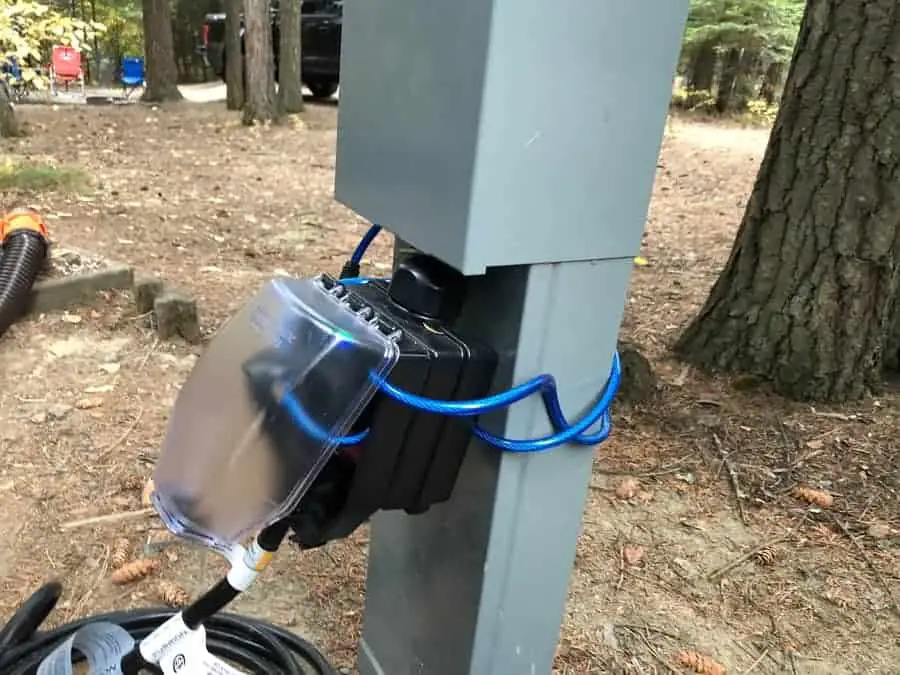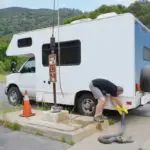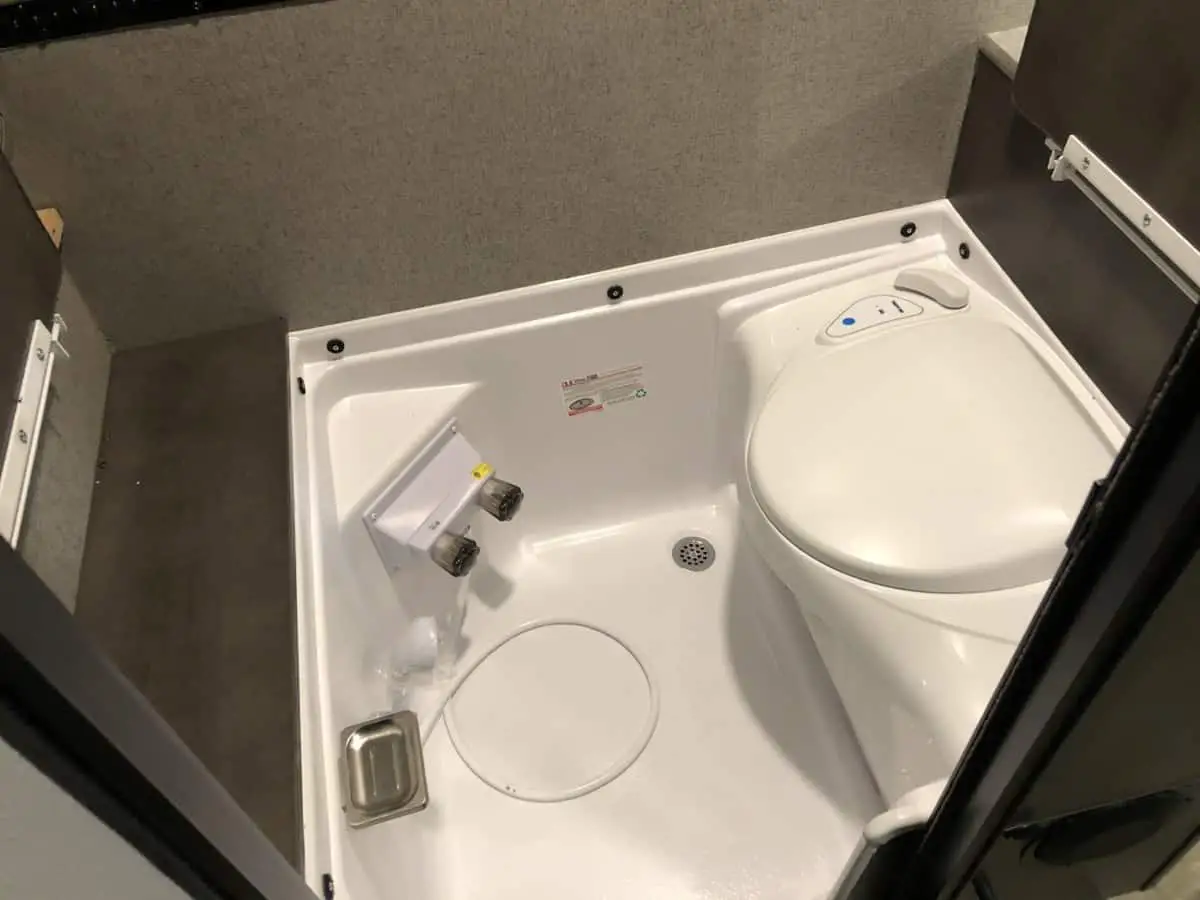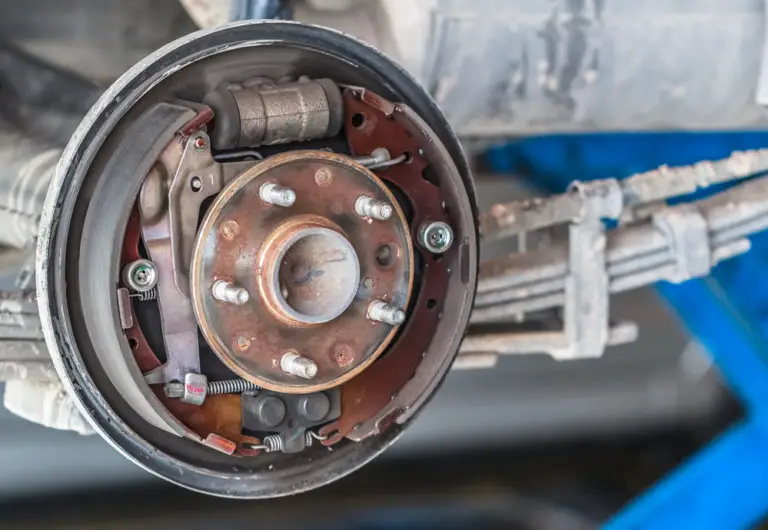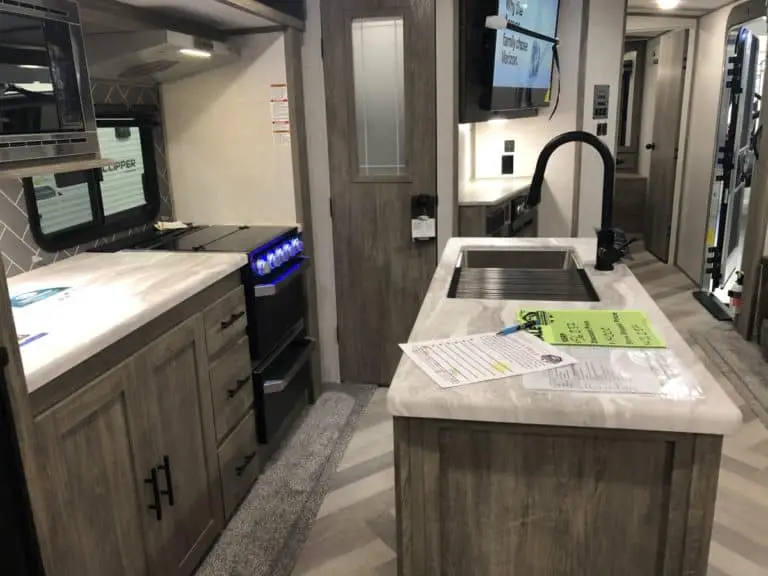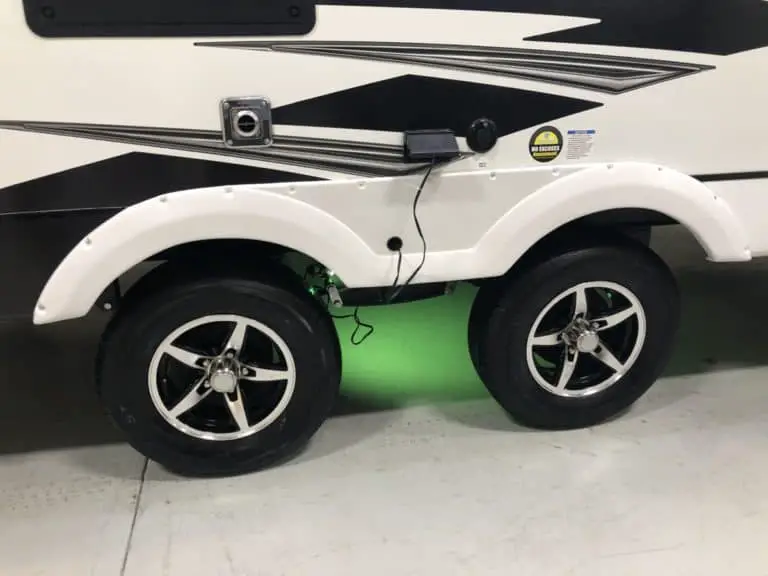Why Does My RV Shock Me and How to Solve the Issue
In the world of RVing, there are tons of issues and things that can pop up unexpectedly. However, one of the more unusual and “shocking” problems happens when you touch your RV, and it zaps you with an electrical shock. Obviously, an RV that shocks you is abnormal, and you’ll want to solve the problem as quickly as possible.
Your RV shocking you isn’t normal and is being caused by an electrical issue. In most cases, a shocking RV is because of reverse polarity. Reverse polarity can occur because of the outlet that your RV is plugged into, the cord that you’re using, or because of a damaged wire within your RV.
In this article, we’ll dissect these three possibilities and delve into other possible causes for an RV that shocks you. While you can solve many of these problems on your own, it might be necessary to contact an RV technician or electrician. Electrical shock in an RV can cause injury or even death if the shock is severe enough.
6 Reasons an RV Can Shock You
Anytime you’re checking electrical shock issues with your RV, you’ll need a multimeter and a contact electrical tester. Here are the main reasons your RV, travel trailer, camper, or 5th wheel may be shocking you:
Damaged RV Extension Cord
The first possible explanation is that the extension cord you’re using to plug your RV into the main electrical source is damaged. If your power cord has any cuts or frayed wires resulting in exposure to the elements, it’s damaged and needs to be replaced. It’s also possible for extension cords to sustain damage because you’re trying to power more things than they can handle.
To determine if your extension cord is damaged, perform a visual inspection. Look for cuts on the cord or bulging or melting parts. If you find any, you’ll have to replace the extension cord with a new one.
Damaged Receptacle at Campground
A very likely explanation for an RV that’s shocking you is because of reverse polarity from the campground receptacle. Reverse polarity happens when the hot and neutral wires are switched around in an outlet or receptacle. In the case of a campground receptacle, it’s possible that the installer reversed the hot and neutral wires to the wrong terminals, causing reverse polarity.
If you suspect that reverse polarity is getting caused by the receptacle you’re plugged into, you should contact an electrician. Reverse polarity is tough to diagnose for amateurs who don’t understand the difference between hot and neutral wires and terminals. Reverse polarity can also happen with an individual outlet in your RV and cause the same issues.
The best way to determine if the power is good at a campsite is with a surge protector. These models (30 amp option, or 50 amp model) can be plugged into an outlet at a campsite and tell you if the wiring is incorrect protecting you from dangers from improper wiring.
Here is one of our articles about the best surge protectors if you need some more information.
If you want to add additional protection for low voltage, an EMS Surge protector will be your best bet.
A Damaged Wire Inside Your RV
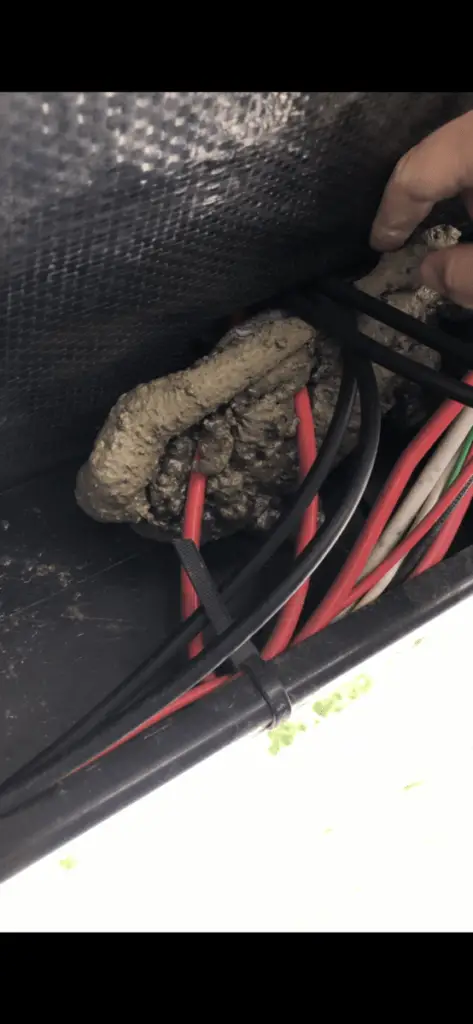
An important thing to understand about live electrical wires is that they don’t lose power when you cut or fray them. Instead, the side that’s connected to the power source will remain hot and electrified. Unfortunately, when this hot wire touches a metal component on your RV, it will electrify everything that the metal is touching. If this happens to be the frame of your RV, the entire RV will be electrified.
Your RV is full of wires, and checking every one of them will be timely and difficult. However, you can verify that a damaged wire inside our RV is the problem by pressing an electrical tester to the side of your RV and checking for power.
Parking Too Close to a High Voltage Line
Although rare, it’s possible for an RV to become electrically charged from parking too close to a high-voltage power line. This problem is rare because you’ll have to park extremely close to the line, usually within several inches. However, it’s still a problem to watch out for and to be aware of.
High Humidity
Another rare but possible problem is that the humidity is too high in your area. While high humidity typically can’t electrify your RV, it can amplify problems that are already present. When humidity is high enough, it means there’s enough moisture in the air, and it becomes like a blanket. You don’t have to be an electrician to know that water and electricity don’t mix.
Damaged Receptacle Inside Your RV
As we said earlier, a damaged receptacle within your RV will have the same effect as a damaged receptacle at a campground. It’s typically because of reverse polarity due to crossing hot and neutral wires and attaching them to the wrong receptacles.
If you suspect an outlet is the cause of your shocking RV, you can use a multimeter to check them. You can use the polarization feature on a multimeter to check that polarity is correct and isn’t reversed.
It is Raining Out
Water can cause a short in your RV if you have unprotected plugs, surge protectors, or even a damaged extension cord in a puddle of water. Make sure your electrical equipment is shielded from the water and in its best shape before you use it camping.
Frequently Asked Questions
How do I stop my camper from shocking me?
If you’re getting shocked by your camper, it’s probably because of a reverse polarity issue. You’ll have to find the source of the reverse polarity and repair it to get your camper to stop shocking you.
What would make a camper shock you?
In addition to reverse polarity, a camper can shock you because of a damaged internal or external wire that’s touching the frame or metal part of the camper.
Why do I get shocked when I touch a slide?
The slideout of your camper is connected to the body of the camper via metal rods and poles. It’s also possible that the slideout siding is made of metal. In either case, you may get shocked touching the slideout if the rest of your camper is electrified.
Be the first to be notified about FREE tips, hints, coupon codes, and email-exclusive information. All for FREE!

